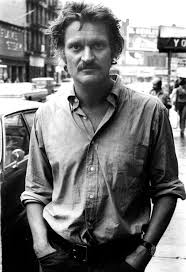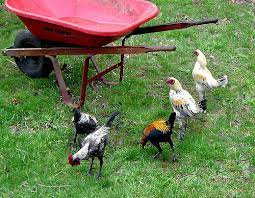
Having trouble writing a poem? Try writing an “anti-poem.”
For inspiration, you might delve into The Collected Poems of Frank O’Hara. My copy features an introduction written by fellow poet John Ashbery (pictured). In it, Ashbery details O’Hara’s penchant for writing whatever, whenever. Frank also had a habit of losing his poems. They were that slapdash.
By way of evidence, Ashbery quotes a few lines from various O’Hara poems. Given the body of evidence (read: a lot), it was easy to do. We see O’Hara writing stream of consciousness. O’Hara having fun. O’Hara not O’Caring.
This is the New York School of Poets, strongly influenced by French poets like Rimbaud and Surrealists like never sat around King Art’s Round Table (“Get real, Sir Real!”). Ashbery himself was a card-carrying member (or should I say, “non-card-carrying” member, as rules were made to be broken and schools were made to be skipped).
Which brings me to this piece of advice. If you’re feeling blocked as a poet and overwhelmed by the self-imposed pressure of writing something meaningful and artsy, go New York (“New York” = “rogue”). Write an anti-poem.
Anti-poems, by my definition (which is all that counts, because I am now in “anti-” mode, a.k.a. some sweet kind of superpower), are poems that just hatch out of your head like Athena’s breech birth from the dome of Daddy Zeus (heads or tails, m’lord?).
What does that look like? Think of your composition book or computer monitor after you’ve done a free write, then take a minute or three to gussy it up. The result might look like this 2005 poem from Ashbery:
“Composition”
by John Ashbery
We used to call it the boob tube,
but I guess they don’t use tubes anymore.
Whatever, it serves a small purpose after waking
and before falling asleep. Today’s news—
but is there such a thing as news,
or even oral history? Yes, when you want to go back
after a while and appraise the accumulation
of leaves, say in a sandbox.
The rest is rented depression,
available only in season
and the season is always next month,
a pure but troubled time.
That’s why I don’t go out much, though
staying at home never seemed much of an option.
And speaking of nutty concepts, surely “home”
is way up there on the list. I feel more certain about “now”
and “then,” because they are close to me,
like lovers, though apparently not in love with me,
as I am with them. I like to call to them,
and sometimes they reply, out of the deep business of some dream.
Quite conversational, wouldn’t you agree? As for form? It is to laugh. Philosophical? In its way. Talky? Some might call it “prattle poetry.”
All that said, the New York Poets weren’t writing garbage and their work certainly appeals to broad swaths of readers, even those who are not poetry sorts. And you must admit, “rented depression” is rather nice, as are the final lines of the poem, which grows dreamy with deep business.
Still, I find easy-looking poems, whether they were easy to compose or not, to be great sources of inspiration, especially when you are trying too hard, because the fact is, trying too hard can wreck a poem before it puts its shoes on. And winging it by taking a walk barefoot can sometimes gift you with the oxygen of ideas. Something to feel good about. Something to mine and refine.
Then you can call it poetry from the (fill in your state or country here) School. For me, that’d be the “Maine School of Poetry.”
See how easy? Take ownership and pride. Then make like Ashbery and O’Hara: Write like you don’t O’Cara.








